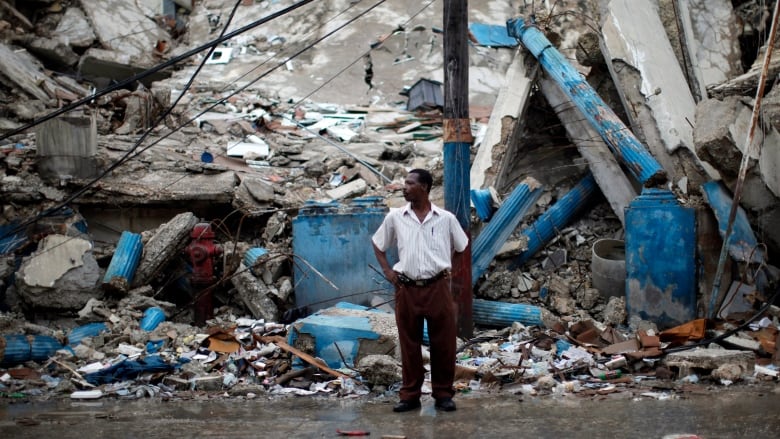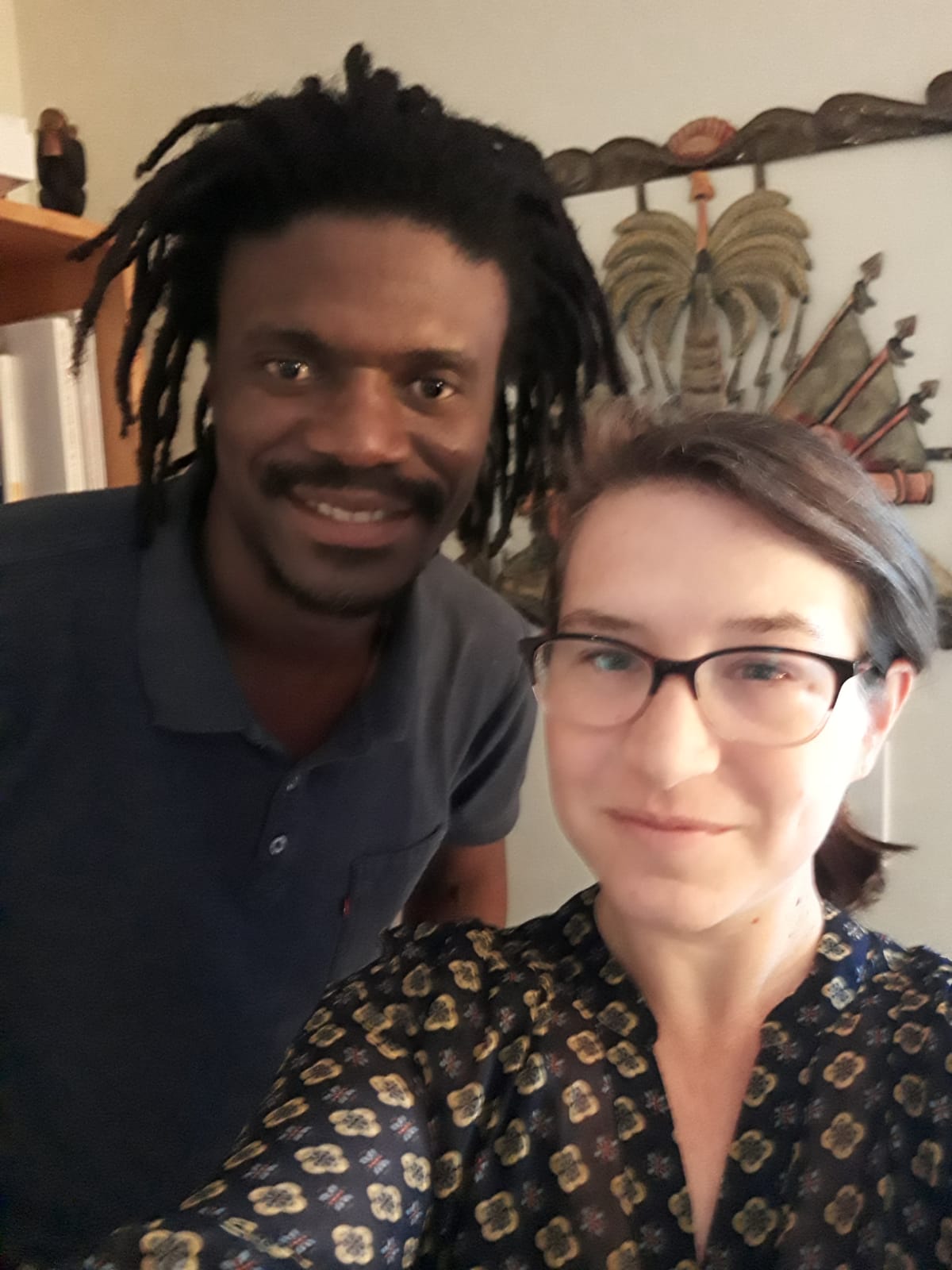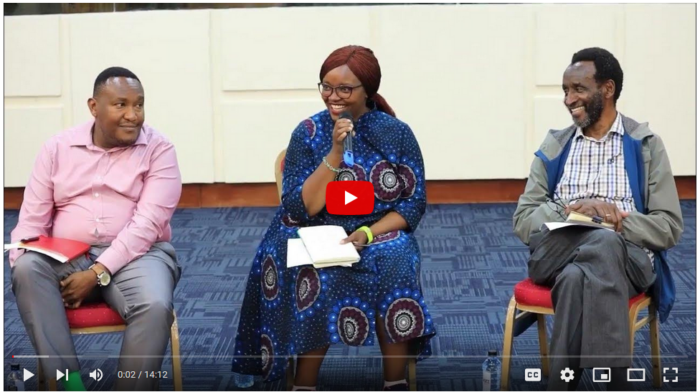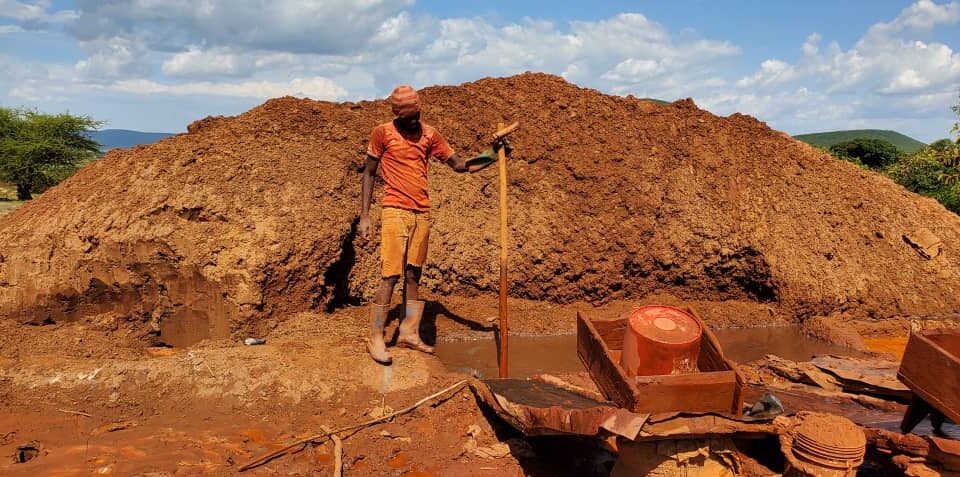Haiti: local views on how the international community responded to the 2010 earthquake

Turismo Sostenible: innovación desde Argentina
February 3, 2020
What can we learn from local solidarity in Haiti?
April 7, 2020This is the first part of a conversation with Sabina Carlson Robillard and her husband Louino ‘Robi’ Robillard. Sabina, a US national, and Robi, a Haiti-born, met in Haiti while contributing to the response to the 2010 earthquake. Today they support Konbit Solèy Leve, a community-led movement founded in the biggest Haiti slum, Cite Soleil, in 2011. In Part One of this conversation, Sabina, Robi and I discuss the international response to the 2010 earthquake from a local perspective.
Hi Sabina and Robi. Tell me a bit about yourselves. What do you do in Haiti? Do you work together?
Sabina: Robi was raised in Cite Soleil. We began working together after the earthquake. I came to Haiti [as an expat] while Robi was part of a local group doing its own needs assessment – it was a missed over by international needs assessment efforts. I was there when his group presented the assessment to the UN, he had done an incredible job with grass-roots movements but the UN was very dismissive. I got up and made angry comments, got Robi’s attention and we started talking. I ended up moving to the Cite Soleil community. Robi was a grassroots community leader, we were both there at the founding meeting of Konbit Solèy Leve, working with IOM [the International Organization for Migration] and doing grassroots community work. We became a couple.
Robi: I was born in St Raphael [about a hundred miles north of the capital, Port-au-Prince]. My parents brought me to Cite Soleil when I was two and a half years old. Cite Soleil is a complicated area due to violence, insecurity and poverty but that’s my home. I went to school there. After the earthquake, I didn’t realise what had just happened. I just thought, if I am still alive I have to give my life to my country. In 2010, Cite Soleil was a very complicated place, you couldn’t even cross the street, but the earthquake brought those barriers down, people who were supposed to be good leaders came together. We started the social movement Konbit Solèy Leve to help an area of five blocks initially. Since then, we’ve done advocacy, community programs, and helped other organisations grow.
What do you think of the international response to the earthquake overall? What do you remember of that time?
Robi: I spent 16 months with IOM. [To understand what happened] you have to go back to Haiti’s history, we had a dictatorship from the 1950s to 1980s… then came the guy of the people, Aristide, he got elected but had to leave the country after a coup d’état, then he was brought back to Haiti. This unstable political situation had a huge impact on our economy.
Sabina: Haiti was caught in the IMF [International Monetary Fund] structural reform of the 1990s. Part of this reform ultimately created an environment that promoted the use of cheap labour and led to import rice from abroad. It caused a real crisis – Haiti’s ability to be food sufficient became limited.
Robi: because Haiti was so dependent [on external assistance], we got a lot of corruption. When the earthquake hit, that was a shock, over 200,000 people were killed, the economy was destroyed. The international community had been helping Haiti for so long that they decided to come together but did not include us. At the time, our President’s mandate came to the end and we had to choose another one. Michel Martelly became President despite not being prepared [to manage the situation]. The international community spent a lot of money in tents, rather than housing projects. The Clinton foundation got involved but the situation in Haiti became worse and worse. That’s when Haiti became the Republic of NGOs. The UN peace-keepers had been there since 2004 – they’ve just left. When you have the UN for 15 years and you see no changes, you have a problem. This was an issue even before the earthquake.
Sabina: essential services were no longer provided [after the earthquake], the gaps were filled by the UN, NGOs and Haitians. NGOs still replace the government today. We struggled with that then and still do today. Aid dependency disempowers people instead of making them self-reliant. Sometimes NGOs can come up with good ideas, or sometimes they are super destructive. If external interventions are not well thought-through, they can throw communities back.
Robi: the Haiti government is not Haitians. Our government gets international support, but that doesn’t mean Haitians get it. Here’s one example: we had a lot weapons everywhere, the DDR people [UN disarmament officials] came with this reinsertion program idea, they came to Cite Soleil and said ‘if you give me your gun, I will send your kids to school and give food to your family’. That was a good idea but because we got a lot of poverty and only people with guns could get into the program, I witnessed young guys in my neighborhood borrowing guns [to give to the UN]. They had never done anything bad before!
Sabina: a lot of Haitians were excluded from the international response. Just the questions people were asked in the assessments were off, so the responses were off too. If the original evidence is not strong enough, everything else will be off.
Robi: the day after the earthquake, a lot of people tried to go to the countryside. When help finally came to Port-au-Prince, it didn’t go to the other parts of the country. Distribution was a dilemma for the international community: who was affected by county? Because people were so poor, they had left for the countryside to look for food. The focus [of the international community] was too much on Port-au-Prince.
Are there any lessons that you think NGOs, UN agencies and donors still need to learn? Do you see the same thing happening in other humanitarian situations and, if so, where?
Robi: I hope they have learned something. Buy food locally. It wasn’t just the UN’s fault. You have to be ready to help but also to accept help. The Haitian government didn’t understand what Haitians could do on their own, they didn’t know what to do, we didn’t even have the data. We didn’t have GPS coordinates for our hospitals. They spent too much time dealing with basic stuff, mapping the problem instead of getting help out. The government was unprepared and weak. All the offices had collapsed, government staff also had their families affected [by the earthquake]. They couldn’t rise to the challenge.
Sabina: in the middle of a crisis it’s the worst time to learn and gather info. Even in localization efforts [broadly speaking, localization is about helping local civil society organisations better respond to a crisis by increasing their capacity and channeling more direct funding from donor governments], you have to invest in people in between crises. I wasn’t even there in the first crazy days after the earthquake. How can you collect data when the ground is still shaking? We have to get better at working in partnerships. During a crisis it’s not the right time to play catch-up.
There’s a lot of things we can criticize, you can’t undo some things like structural adjustment. You can’t undo lack of data. But one thing that could have been done was to give a choice. Voices were excluded. It wouldn’t have been that hard. For example, you couldn’t get through the barbed wire [to get into the UN compound and coordinate aid efforts with the UN] without a foreign passport. Locals had to register with a cluster to enter, but to register you needed to get into the compound… also cluster meetings were held in English only, the first meetings in French happened later, they were on agriculture. There was so much jargon…. even if people had been allowed to attend those meetings, they wouldn’t have been able to meaningfully participate in the discussion. Using jargon was a choice – again, again and again. No one was doing this on purpose, but just being in a homogenous space created power dynamics and a strange bubble. [At the time], I was a recent college graduate and already leading a team of 40+ people. I did the best I could but what put me in that position of power was that I was an American. That meant that people making decisions were people like me, structurally decisions were not made by affected people, or were made by elite Haitians. We had to fight to hire people from Cite Soleil – there was engrained selection. If you didn’t speak beautiful French you couldn’t be a team leader, but you needed people speaking the local language. In IOM we were lucky to find senior staff fighting for change. The guy who directed the medical unit used to say: I can’t change the fact that I lead this but I let my local deputy run the show. We have to hire people who may even be illiterate but can do the work in camps. Just be aware of how to navigate this power – it’s everywhere.
What about other local actors, such as local authorities or businesses? What could or should they do better in a similar situation?
Sabina: today you start to see coordination efforts that are more inclusive, with feedback mechanisms. Power dynamics hasn’t changed much, expats will still be in positions of power, many programs are still funded by OECD [the Organisation for Economic Co-operation and Development] donor countries. We haven’t changed the fundamental power structures, but a lot has changed on the side.
Robi: because our authorities were so weak, when the international community came to Haiti it didn’t wait for them to stand on their feet, it started managing without them. That created a lot of problems. Let’s talk about salaries: expats were given big per diems, international organisations had a ceiling, they would say: we can’t pay below that. The amount of money people got paid was something Haitians had never seen before… this destroyed our economy, people left to work for the UN, [it was clear] they would never come back to work for us. Also, expats get paid in US dollars – the owner of a house won’t take prices down. It’s very expensive to live in Haiti even now… It used to be a sacrifice to help, now it’s a privilege because you get paid so much.
True and, at the same time, it’s hard to find and keep qualified international staff on local salaries, when they may still have financial obligations at home…
Sabina: I’ve been on both sides, it’s a challenge, if you set the expat’s salary high, it will impact on local pay. I was paid ten times higher than Robi and he was risking his life every day. These were tricky contradictions. There’s not a lot of flexibility, it’s a rigid system, we’re locked into this inherent inequality of different color badges.
Any final point or recommendation? And to whom exactly?
Sabina: my research on localization these days leads me to conclude that Haiti is not a good example of civil society engagement. There’s a lot of resentment [among Haitians] about being excluded and undermined. There is not a lot of interface.
Robi: this is not just our concern. UN and international organisations are trying to get more participation. It’s difficult, but government has started taking more responsibility. If leadership is no good, aid is not going to the people. It’s a chain of problems, people need to go out and help others, work with them. What are you going to do if there’s an earthquake tomorrow? Put [the lessons we learned] in the manual. To help Haiti, sometimes you need to stop giving them help – it’s too easy.
Sabina: humanitarian aid is a way to ease suffering, but every time you turn it into a system it will reflect power structures from where it originated. Isabella [Jean, one of the authors of the 2012 book Time to Listen] is a big proponent of Do No Harm. If you are going to engage, you have a responsibility to understand the potential harm [of your intervention] as much as you can.
Photo credit: Reuters






1 Comment
how can the humanitarian system exclude the needs of some of htemost vulnerable?
the cluster system is badly designed